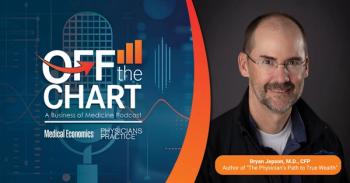
7 tips for healthier living
Add more happiness and balance to your hectic life with these simple suggestions.
It’s easy to get hyperfocused (and overwhelmed) with the daily grind. But that’s precisely when you need to take a step back to refocus on the big picture.You can’t heal patients if you’re too tired, frazzled or overwhelmed.Sometimes, the best thing you can do for others is to focus on yourself, especially in a field where you’re constantly giving to others and responsible for others’ lives.Here are seven ideas for self-care to help you feel refreshed, re-energized and ready for what lies ahead.
Newsletter
Optimize your practice with the Physicians Practice newsletter, offering management pearls, leadership tips, and business strategies tailored for practice administrators and physicians of any specialty.






